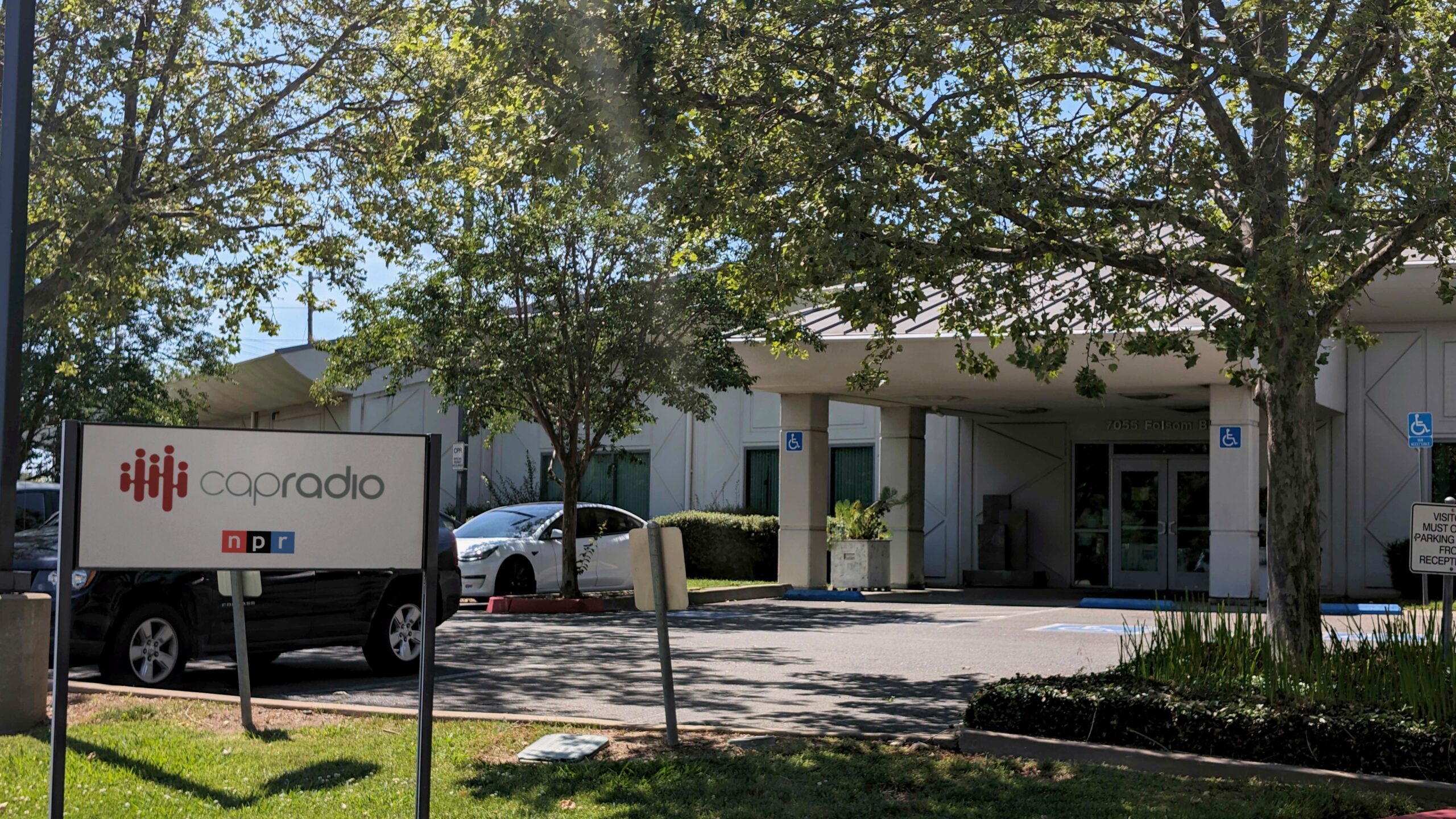NPR Board hires counsel to probe what went wrong
Reacting to NPR’s abrupt image makeover — from ascendant news organization to partisan punching bag — the network’s board last week hired an outside firm to investigate the decisions that invited the comedown, the dismissal of news analyst Juan Williams.Dave Edwards, the board’s new chair, announced that Weil, Gotshal & Manges, a 20-office multinational law practice, is leading the internal review initiated last month. Weil is “highly regarded with considerable expertise in governance issues,” Edwards said, shortly after the board unanimously elected him as its new leader.Security guards with metal detectors checked the unusually large number of onlookers at the Nov. 11 meeting at NPR headquarters in Washington, D.C. A public session preceded nearly a full day of closed-door board meetings.
Just two weeks earlier, after NPR’s dismissal of Williams prompted a display of outrage at Fox News, the network received a bomb-threat letter and turned it over to law enforcement (Current, Nov. 1).
Edwards’ predecessor, Harvard business professor Howard Stevenson, said in his parting remarks as chair: “Nobody is thankful for where we are, but the past is prologue, and now we have to look to the future. I tend to wish my term had ended two weeks ago.”
Edwards was “very proud to sit as chair of this board at this table,” he said after taking the gavel. “NPR is a very important institution, a vital source of original reporting and cultural programming. Our goal must be to build a stronger public service for our audience.”
Visitors who wanted to address the board on the Williams incident had been asked to sign in, but no one did. Likewise, no one stood up later when Edwards invited attendees to speak even if they hadn’t signed in. The board adjourned for an extended executive session.
“We should be on Code Red”
During the month leading up to the board meeting, NPR President Vivian Schiller withstood a bruising attack, including ambushes by Fox News video crews and criticism from anxious station managers who questioned her job performance during a luncheon at the Western States Public Radio conference Nov. 4 in Las Vegas.
After midterm election gains for congressional Republicans, pubcasting veterans attending WSPR worried that the NPR was unprepared to navigate the political minefield that lay ahead and expressed doubts that Schiller could lead the way.
Jim Paluzzi of KJZZ in Phoenix, one of the station managers who spoke during the WSPR lunch, advised Schiller to take a page from the Transportation Security Administration’s system for rating the level of threats from terrorist attacks. “Based on what has happened in recent weeks, we should be on Code Red, with extended sensibilities to all threats to our operations,” Paluzzi said, as he recounted the exchange in an interview. Practices that might have been acceptable in the past — such as devoting airtime to new books written by NPR hosts, or giving NPR reporters the freedom to appear on other media outlets — should be reevaluated, he said.
“We have to proceed with heightened sensitivity, as we’re going through a very difficult period for CPB and the new Congress,” Paluzzi said.
With the decision to commission Weil’s independent review of the Williams firing, the NPR Board signaled its assessment of the threat level. The firm has handled many high-stakes jobs for NBC, Universal, Fox, CBS and other media companies, including NBC’s purchases of the Lifetime, Oxygen and Weather channels and its proposed merger with Comcast.
Years earlier the law firm defended CBS against the Brown & Williamson tobacco company’s attempt to subpoena materials used in 60 Minutes reporting on the hazards of smoking.
The board devoted its Nov. 11 closed meeting to Weil’s review of the Williams affair, Edwards said later. “It took time for the board to get the process right and make sure they were headed in the right direction,” he explained. The board also directed Schiller to oversee an internal review of NPR’s ethics guidelines and practices, which she also initiated last month, as well as NPR’s social media guidelines.
“Our work is clearly not done on the issues that have come up over the last couple of weeks, and we also know that we’re going to face many other challenges that we probably don’t foresee as we sit here today,” Edwards said.
In Schiller’s report to the board Nov. 12, she promised to learn and recover from her mistakes. “What we prize is the trust that listeners have in NPR programming,” she said. “It is sacred. It is why we hold firm to our standards, even when it is hard to do so. It’s why we get up every morning to come to work, and what we think about every night when we go home and what we’re ruminating on when lying awake in the middle of the night.”
Confronting Schiller
Schiller has repeatedly apologized and acknowledged responsibility for mishandling Williams’s dismissal, but station executives at the WSPR luncheon, two days after the midterm congressional election, questioned her ability to lead NPR through the continuing battle.
In one pointed exchange, John Stark of KNAU in Flagstaff, Ariz., asked Schiller to rate her performance based on skill sets defined by the search committee that recruited her to the job in 2008. The qualities included “political tact” and “influencing skills to build consensus,” according to a manager who attended the session.
Her response to Stark largely focused on the pending internal review of NPR’s editorial policies, according to the manager, who would not agree to be quoted by name about the session.
“She’s dwelling on the policy implications of the Juan Williams firing rather than the implications of her comments and the intent of members of Congress to defund public broadcasting,” the manager said. “She’s not addressing that.”
The Q&A was uncomfortable for everyone at lunch, observed Carl Matthusen, retired g.m. of KJZZ, who chaired the NPR Board during the 1995 battle to protect CPB funding. “It wasn’t pleasant for Vivian or the audience,” he said. The discussion of the Williams dismissal and its political aftermath “didn’t represent a big step forward” for anyone.
Matthusen was also troubled that so much of the conference was devoted to opportunities for pubradio to expand and grow, when in his assessment the prospects for a loss of federal funding loom larger.
“I kept waiting for somebody to say something important,” Matthusen said. “The election was on Tuesday, the results don’t bode well for public broadcasting, and nobody talked directly about that until the last session of the conference,” he said. On Friday, NPR lobbyist Mike Riksen, v.p. of policy and representation, spoke about the political environment for pubcasting on Capitol Hill.
Matthusen chose that moment to speak up, he told Current. “I expressed my amazement at the apparent lack of concern” by NPR and CPB execs at the conference.
The last zero-it-out attack on the field’s federal assistance — led by House Speaker Newt Gingrich in 1995 — was held off by a “big grassroots effort” coordinated by pubcasting’s national groups, Matthusen said. At WSPR, he heard nothing about preparing a comparable defense. “No one said they were talking to anyone else.”
“It’s a mess, and I really do fear that there’s going to be an absolutely concerted attack on public broadcasting, and it could take several forms,” said John Greene, manager of KUER in Salt Lake City. Greene supports NPR’s decision to drop Williams, but the public reaction to it has been directed into a feverish anger over government spending. “This isn’t about Juan Williams,” he said. “It’s about controlling the budget deficit.”
Other observers echoed concerns that the challenges require NPR to take a more strategic view of its role in the media world. “We’ve reached a degree of success that we attract attention that we are a serious player, and it requires a kind of . . . strategic consideration of the landscape and our role in it,” observed Sue Schardt, president of the Association for Independents in Radio, in an interview last week. “It will require a great deal of savvy and smart thinking to understand how to play this the right way.”
“This incident showed that as a company NPR needs to do some serious upgrading of its capacity as a modern media organization,” said Mikel Ellcessor, g.m. of WDET in Detroit. “I believe people in leadership of NPR can lead the company to greater heights than we’ve ever dreamed, but they’ve got to game up.”
Schiller is “savvy about what needs to be done to lead the industry,” said Ellen Rocco, manager of North Country Public Radio in Upstate New York. “You have to give people a chance to prove themselves and grow beyond a mistake.”
Any pubradio chatter about letting Schiller go at this point is premature, Rocco said. “It might satisfy people who need to say something simple and easy to audiences that are upset, but I don’t think it addresses the core issue of NPR advancing its standards to the next level and applying them even-handedly across the organization. It’s not an easy thing to explain, but that’s our job.”
“I’m inclined to think she can rise to the occasion” of defending public radio, Rocco added. “She believes in public media and the relationship with the stations and she’s committed to that. I think that’s worth a lot more than a really slick talker. She’s authentic and really cares about what she’s doing.”
Carol Cartwright, president of Ohio’s Bowling Green State University and president emeritus of Kent State, is the new NPR Board vice chair. Both universities are licensees of public broadcasting stations.








